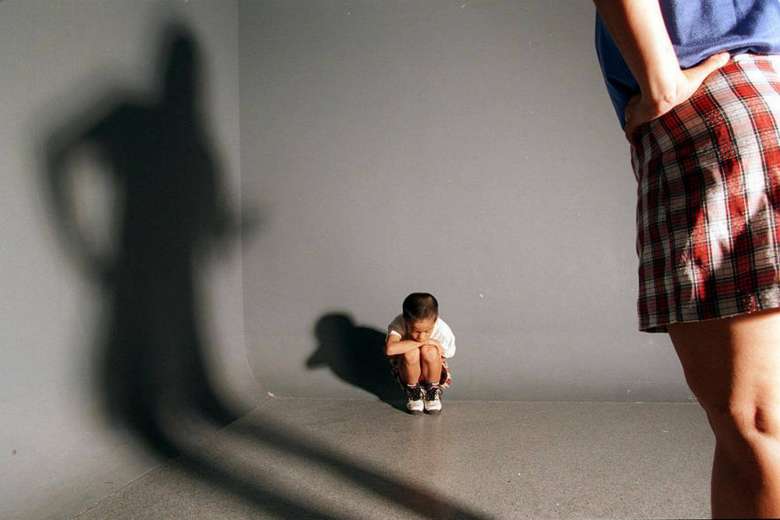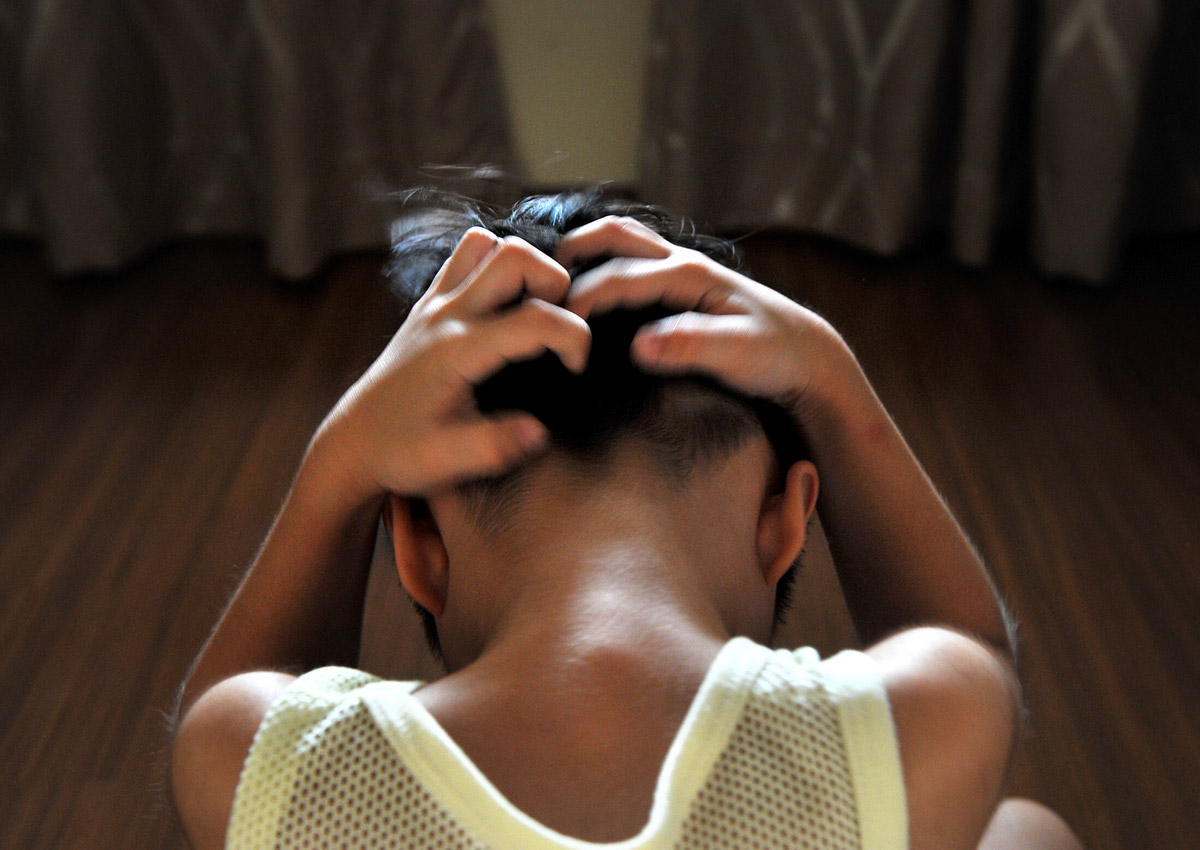15 things parents should never tell their children ever

Your words can have harmful effects on your kids, even if you're saying positive things.
As counter-intuitive as this sounds, there are certain things you should never tell your kids.
After all, children's minds are impressionable.
You probably know not to use negative phrases or overpromise.
However, there are less common while you might not think that saying "good job" is particularly bad, your child draws a certain meaning from it you might not have intended.
Parents aren't always aware of the impact certain words have on their kids.
But once you're aware of the types of things you shouldn't say, you can build healthier relationships with your kids built on a foundation of mutual respect, positive reinforcement, and unconditional love.
15 THINGS YOU SHOULD NEVER TELL YOUR KIDS
1. WHITE LIES
Often times parents resort to tricking their children into doing something they do not particularly enjoy doing. This is bad parenting.
You can demoralise your children by avoiding the truth. For example, telling your child that the vaccination injection won't hurt can lead to distrust.
And ultimately, it sends a signal that it's okay to lie.
You're a role model to your children from day one. Avoid telling white lies if you don't want your kids to start fibbing.
2. STEPPING IN TO HELP IMMEDIATELY
Parents naturally want to see their kids succeed. It's instinctive to help your child if you see him/her struggling.
However, offering your help too quickly can undermine your little one's independence.
If you consistently come to the rescue whenever your child can't do something on his/her own, this creates a dependence on others.
Instead, be the supportive coach on the sidelines and ask questions to guide your little one to reach the answer himself/herself.
If your child is trying to complete a puzzle, you can ask "Do you think the red block or the green block goes in the red hole?"
Encourage your child to explore his/her line of logic by asking "why do you think that?"
Even if it's wrong, allow your little one to explore.
3. LABELLING YOUR CHILDREN
Some parents think that telling their children they are bad, stupid, or other negative labels will motivate them to do better.
This tough-love approach has the complete opposite effect. Shame creates a sense of fear and will cause confusion in your little one.
You can scold your child if he/she did something naughty. Identify the specific behaviour and tell him/her why you are punishing him/her.
"I love you, and I am punishing you because you did something naughty."
4. COMPARISONS
[[nid:451910]]
Parents often compare their kids with other children. But that doesn't mean it's good or healthy for your children's egos.
Common phrases to avoid normally start with "Why can't you be more like…" or "Why can't you just…"
Every person develops at a different pace. Instead of comparing to other children or siblings, treat each of your children as separate individuals.
Celebrate their strengths and acknowledge their weaknesses.
Offer personalised help to each child. There isn't a one-size-fits-all approach to parenting, and your kids need you to offer support specific to their particular character.
5. CRITICISMS

Even if it's seemingly insignificant, criticising your children's work does more harm than good.
Instead of condemning your kids' academic performances, appearances, or even choice of friends, celebrate your children's victories.
Praise hard work because your child will learn to be proud of his/her effort. The hard work will bear fruit in due time.
Instead, Michele suggests that parents should instead comment on their children's victories and avoid condemning their study, work, appearance, friends or choices.
6. SAYING THINGS YOU DON'T WANT TO HEAR
A classic case of "do what I say, not what I do."
It's your choice how you conduct yourself. However, bear in mind that your kids copy a lot of things you do.
Avoid saying unsavoury things that you don't want to hear your own kids repeating.
7. PLACING BLAME
Pointing the finger causes hurt and stress.
Even if it's obvious that your child did something wrong, take your time in asking questions without directly accusing your little one.
Your child will learn how to be diplomatic and is more likely to be honest.
8. GENERIC PRAISE
[[nid:457959]]
You don't think twice about giving out general praise in response to achievements. Saying "good job" or "nice one!"
But these types of responses will make your child more dependent on receiving praise as motivation.
Instead, praise specific actions when something happens.
For example, "well done on your exam result, I know how hard you studied for it" or "I saw your pass to your teammate, good vision!"
9. SAY "IT'S OKAY"
As parents, it's normal to feel worried if your child gets hurt.
Many of us try to reassure our little ones that they're okay.
However, when you say that, it dismisses his/her emotions.
Instead, help by comforting your child with a hug or a kiss, then acknowledge what he/she is feeling.
By doing so, you're nurturing your little one's ability to understand and healthily express his/her feelings.
10. PUT UNNECESSARY PRESSURE

Kids aren't the most organised people, by any means!
But when you put pressure on your child for being tardy or demanding to know what they got up to in school, it causes a lot of stress.
In fact, it can get so bad that your little one experiences after-school restraint collapse!
If your child is a bit slow, you can turn activities into mini-games.
Have a fun race to see who can get dressed the quickest.
Ask open questions around school work and avoid pushing your little one for more information.
11. HARSH REJECTIONS
Parents are humans as well.
Sometimes, you just need a time out. But if your little one catches you at the wrong time, it's can be easy to snap at him/her and shout "Now now!" or "leave me alone!".
If you need some alone time, explain to your child that you love him/her, and you want to be alone, but you will be available later and you look forward to spending that time with him/her.
If your little one is too young to understand time, use a stopwatch on your phone or a timer to be accountable to your promise.
This is a good opportunity to demonstrate healthy communication skills and honesty.
12. "WHY ONLY A-? WHY DIDN'T YOU GET AN A+?"
[[nid:462401]]
It's an age-old adage that parents can be very demanding with academic performances, particularly Asian ones.
But when you say this, it reinforces a message that nothing your child does is good enough for his/her parents.
If your little one did his/her best, praise him/her. If there's room for improvement, encourage your child.
Your child is a work in progress and has limitless potential. Harness that by supporting him/her every step of the way.
13. "WHY CAN'T YOU DO ANYTHING RIGHT?"
Sometimes, we get so frustrated that we say hurtful things that we don't necessarily mean.
Even said in the heat of the moment, this absolute statement suggests your child always gets everything wrong, not just this incident.
Avoid using generalised phrasing like this.
14. DISMISS OR AVOID AWKWARD QUESTIONS
It's hard to prepare for these moments as parents. But there'll come a time when your precious little baby is suddenly asking about the birds and the bees, or about life after death.
Many of us are tempted to or actually avoid the questions altogether.
"You don't need to know about this right now" or something similar.
You might be caught off-guard by your little one asking questions about grown-up topics.
But trust that if he/she is asking, then your child is old enough to deserve a proper answer.
In fact, it's better that they get answers about these topics from you.
Create a healthy dialogue by addressing these topics head-on.
If your kids ask someone else, they risk hearing strange or wrong information that creates a stigma around sexuality or topics that aren't often talked about.
Keep your responses short and honest. Your child will eventually find out, through the internet or friends at school.
15. BE OVERLY CRITICAL
When your child doesn't meet your expectations, it's easy to let slip probing questions or critical remarks.
"You should have done better" or "don't do that again".
When you talk to your child this way, your child is more likely to be defensive and keep his/her personal life to himself/herself.
Instead, readjust your expectations and learn how to forgive your child if he/she makes a mistake.
Believe your little one tried his/her best and look to find a collaborative solution together moving forward.
With this list of things you should never tell your kids, you're now more aware of how to approach future conversations with your little ones.
Take care with your words, as they can cut deep!
This article was first published in theAsianparent.